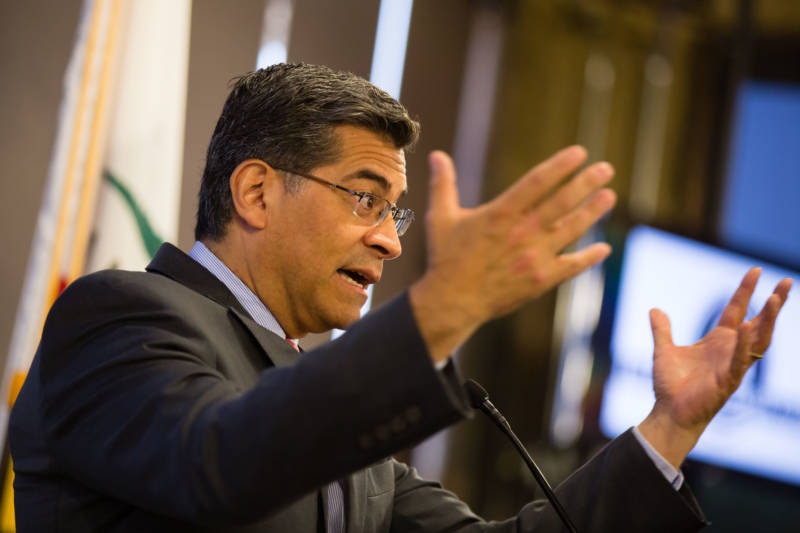Updated Tuesday, Feb. 5, 1:30 p.m.
A leading free speech and open government advocacy organization is blasting California Attorney General Xavier Becerra’s office for rejecting a request to release misconduct files about law enforcement agents that work for his department.
New state legislation requires agencies that employ sworn officers to publicly release disciplinary records involving sexual assault, dishonesty and serious use of force.
The attorney general’s response to a public records request seeking that information references some superior court challenges to the law’s application to past records brought by police unions.
“We will not disclose any records that pre-date January 1, 2019 at this time,” Mark Beckington, supervising deputy attorney general, said in a response last Friday to a request from freelance reporter Darwin BondGraham.
David Snyder, executive director of the San Rafael-based First Amendment Coalition, called Becerra’s decision unfortunate.
“This is the highest law enforcement officer in the state. He has decided not to disclose records that I think the new law makes very clear should be disclosed,” Snyder said in an interview Tuesday.
State Sen. Nancy Skinner, D-Berkeley, who authored the new law, Senate Bill 1421, said she was baffled by the state attorney general’s rejection of the records request.
“I find the AG’s interpretation puzzling considering that we have law enforcement agencies up and down the state, including our California Highway Patrol, releasing records,” Skinner said, also an interview.
Skinner said she submitted to Becerra’s office a letter she had written for the state Senate recently that clarified the law’s intentions. She also asked that his staff review a California Supreme Court decision last month to deny an attempt by a San Bernardino County sheriff’s deputies to block access to existing misconduct records.
The attorney general’s response came several weeks after BondGraham, formerly of the East Bay Express, put in a public records query for copies of misconduct complaints made against sworn law enforcement members of the California Department of Justice since 2014 and files involving sustained cases of misconduct, among other material.
BondGraham’s request is among scores of other queries by news organizations, including KQED, to state and local government agencies since SB 1421 went into effect on Jan. 1.

